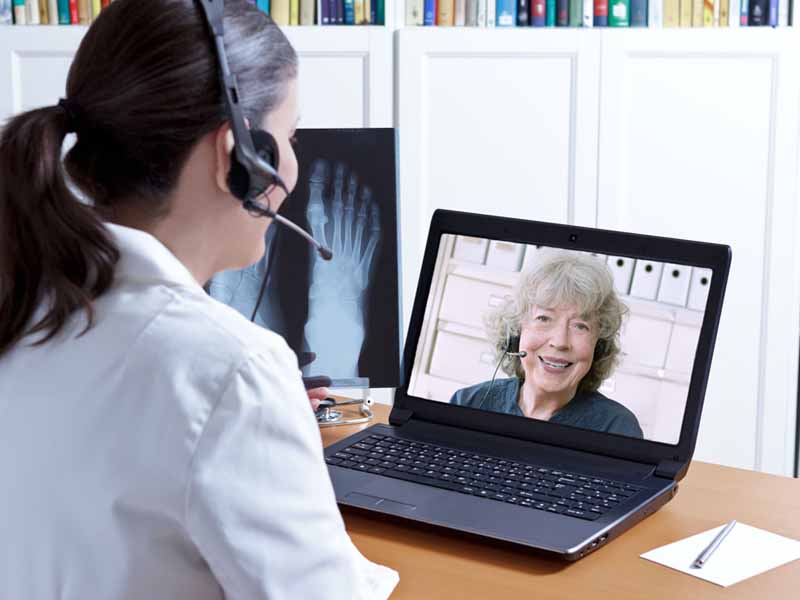Indian Health Service Seeks to Boost Access to MAT
November 14, 2018, 10:24 am News Staff – As the opioid epidemic continues to tear at the fiber of communities indiscriminately across the United States, American Indian and Alaska Native populations haven't been immune.
The Indian Health Service (IHS) has partnered with tribes to prevent opioid misuse, treat addiction and support recovery. But now, it has removed another barrier to this treatment.
In a blog posted Nov. 1, Rear Adm. Michael Toedt, M.D., chief medical officer for the IHS, announced that the federal health program has developed a new Internet Eligible Controlled Substance Provider (IECSP) Designation policy to increase access to treatment for opioid use disorder (OUD) among American Indians and Alaska Natives living in rural or remote areas.
Toedt explained that health care professionals who offer medication-assisted treatment (MAT) using buprenorphine combined with counseling and behavioral therapies need additional training and special authorization from the DEA.

"It is sometimes difficult in rural and remote locations to access a provider with the necessary training and approval to prescribe buprenorphine in an outpatient or office-based setting," he said in the blog. "This policy enables IHS, tribal and urban Indian organization health care providers to apply to be designated by IHS as Internet Eligible Controlled Substance Providers, allowing them to prescribe controlled substances for medication-assisted treatment through telemedicine."
Toedt referenced a September 2016 IHS announcement that the program had contracted with regional health system Avera Health to provide telemedicine services in the 19 Great Plains Area service units.
"IHS has found that telemedicine can be one of the best ways to get health care services where they are needed most, and this contract expands telemedicine services as a means of strengthening access to care at IHS health facilities in Iowa, Nebraska, South Dakota and North Dakota," the 2016 announcement stated.
Story Highlights
Fast forward to September of this year, when HHS issued a document clarifying how telemedicine can be used to prescribe buprenorphine for treating OUD.
According to Toedt's blog post, the Ryan Haight Online Pharmacy Consumer Protection Act of 2008 generally required health care professionals to conduct in-person medical evaluation of patients in DEA-registered hospitals or clinics before being able to prescribe MAT for them via telemedicine.
However, HHS' clarification exempted health care professionals who are using telemedicine and who are DEA-registered in the state where they are physically located and in states where their patients are physically located from that requirement, allowing on-site health care professionals to conduct the in-person medical evaluation.
The new IECSP exception to the Ryan Haight Act takes this a step further by allowing IHS-designated providers to prescribe MAT via telemedicine when the patient is not in the presence of a DEA-registered practitioner and regardless of DEA facility registration status, Toedt said.
"This exception will expand access to the full spectrum of treatment options for opioid use disorder to individuals in rural and remote areas," he said. "Expanding medication-assisted treatment locations will reduce the time for patients to start their recovery journey, potentially lower the risk for return to drug use and may reduce the potential of death from overdose."
Applicants seeking approval for IHS designation as an IECSP will still need to be registered by the DEA to prescribe controlled substances, including holding an active Drug Addiction Treatment Act (DATA) of 2000 waiver to conduct maintenance and detoxification treatment using specifically approved schedule III, IV or V narcotic medications.
Additionally, they will need to provide the following information:
- description of telemedicine services;
- justification for remote designation;
- description of the dispensing model (e.g., directly observed therapy versus dispensing a take-home supply);
- description of patient adherence monitoring strategy (e.g., urine drug screens, prescription drug monitoring program queries, etc.) and frequency;
- description of available mechanisms and strategies to assess the patient's health history and current physical condition; and
- copy of the Tribe's Annual Funding Agreement under the Indian Self Determination and Education Assistance Act that includes provision of MAT services (if applicable).
Also required are a copy of the following documents:
- curriculum vitae;
- all active and inactive state licenses;
- DEA registration, including DATA 2000 waiver number with patient limits; and
- copy of approved local clinical privileges inclusive of MAT.
The IHS will make a recommendation to issue the IECSP designation or deny the request within 30 days of receipt of a completed application.
Related AAFP News Coverage
2018 Family Medicine Experience
Panel: Buprenorphine 'Can Give Patients Their Lives Back'
(10/16/2018)
Surgeon General Releases Updated Opioids Report
(10/2/2018)
Number of Women With OUD in Labor/Delivery Quadruples
CDC Data Show Increases in All States Studied
(8/21/2018)